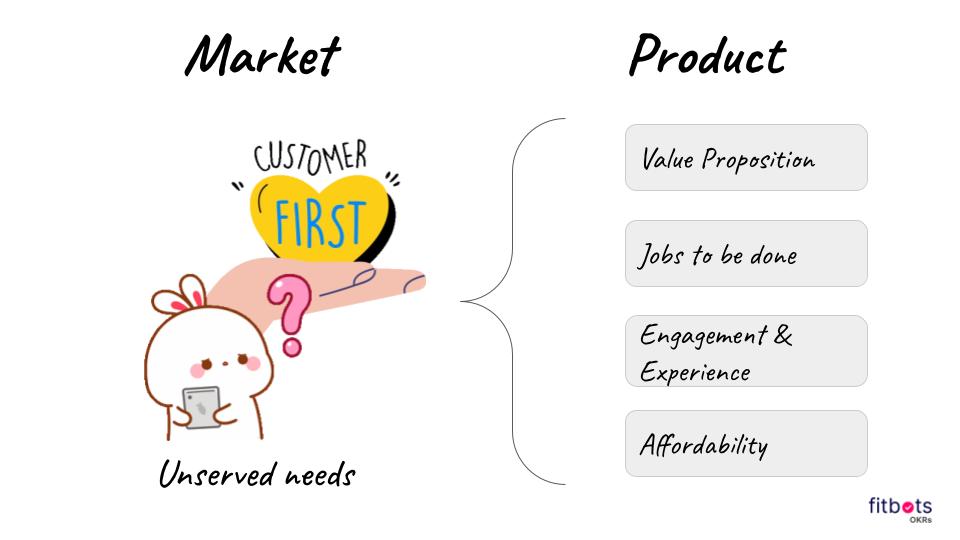
Building a product is not a game of poker where you need to wait for the “best hand” before taking action. It's much more like dominoes – many small decisions that you make can cause a chain reaction, and ultimately lead to success or failure. So how do we know when to play it safe and when to take a risk?
How do you know if the market you are addressing is the best fit for your capabilities? How do you know when your product is ready to be launched? When do you hire, and how do you know they're the right fit? When to play marketing poker and when not to play? When to go “all in” with investments and when to hold tight and conserve cash? How do you scale yourself and the company? When to let go of a customer and when to slog till death? These are just a few of the questions that are worth exploring.
Biggest question of them all is how do you keep teams and stakeholders aligned in the same direction - “the direction of progress.”
Here are the Top 3 dilemmas founders have faced at different points of their startup journey and how they can be navigated better with OKRs.
Achieving product/market fit is critical for a start-up because it paves the way to revenue and positive cash flow — and ultimately to an exit event. In fact, “it's the only thing that matters.”
There is a great way to rally the team behind answering the question better with “Data.” OKRs are a great way to set targets on each.

The following set metrics are a great way to get started measuring the path to PMF.
- Net user growth rate
- Net churn
- NPS & Referrals
- Frequency Key jobs done using the product
- Value Scores ( $, ❤️, ⍲ ): The more you measure directly (vs proxy), the sooner you get to PMF
Each team is different. But every great team has that one thing in common: they are more than the sum of their parts. All founders hate to see teams fall short of their full potential.
The core challenge is alignment. It shouldn't be that difficult, right? Isn't there a formula for this somewhere? How about some kind of checklist? Well, after conversing a lot with the founders and researching what sets great teams apart, I can confidently say that the following metrics, if measured right, will result in an outcome-driven culture.

Here are two things we recommend measuring
- CAP Score - Capability, Adaptability and Passion score for individuals
- OKR Focus Scores for teams.
Founder dilemmas do not end with PMF and CAP but go beyond. These are what I call elephant metrics.
Balancing the risk-to-reward ratios is a skill that all top executives need. There's a fine line between weighing out rewards and risks, and the final decision can make or break your company.
Jack Welch, the iconic former CEO of General Electric said: “If you don't have a competitive advantage, don't compete.”

As top founders and executives, it's our job to decide whether the risk is worth it. This skill can be applied to everything in life; is your book worth writing, should you enter this relationship or quit your job? Other CEOs also weighed in on this topic with Larry Ellison saying: “The number one job of a CEO is to keep the company from being destroyed by measurement.” These quotes highlight that what might seem like a good idea at first (like buying another company) can ultimately prove disastrous unless it's justified by a concrete strategy.
Great leaders face obstacles, not challenges. Some mistakes may be considered a challenge by leaders. But for great leaders, an obstacle is an opportunity to change their perspective and look for new ways to succeed.
For a leader, taking advantage of opportunities and identifying risks are an important part of the job. While no one likes to think about risks, there is something called risk management that every leader should consider if they want to succeed. This starts by identifying the right metrics for your company. Here are few of them that, if ignored, can kill a company of any size.
- MIB - Money in bank, word says it all
- CAC Recovery/CAC Payback Period - measures the number of months it takes to generate enough revenue to cover the cost of acquiring a customer. In other words, it measures when you break even and a customer starts to generate ROI for your business.
- Investor ROI - Whether you have investors (not measuring ROI), assuming you have one is a great way course correct and play the game of poker right.
- Compliance - Often in the spirit of growth, founders can go blindsided on companies. Keep an eye on security, legal and financial companies. They can be the biggest elephants in the room.

Your friends and peers can be a great source of knowledge. If you know people that already work in a specific field or industry, ask them how they got their start. Ask about their work day and the skills they think will be most valuable to a successful founder.
So you're reading an article on this blog? Cool, that's awesome. I'm glad you came across it.
Every founder has dilemmas, but what actions they take and how they navigate makes the difference. If you want to chat, get in touch with me on LinkedIn.
Wondering how to get started on OKRs? Checkout our eBook on How to run an OKR Pilot?
Or if you to know more about how OKRs can help, click here to book a demo.

Kashi is the Co-founder and CTO of Fitbots. Kashi has coached over 700+ teams on OKRs with the focus on helping founders and teams achieve more with OKRs. His niche focuses on the future of work by bringing technology to life.

Free 21-day access when you sign up...